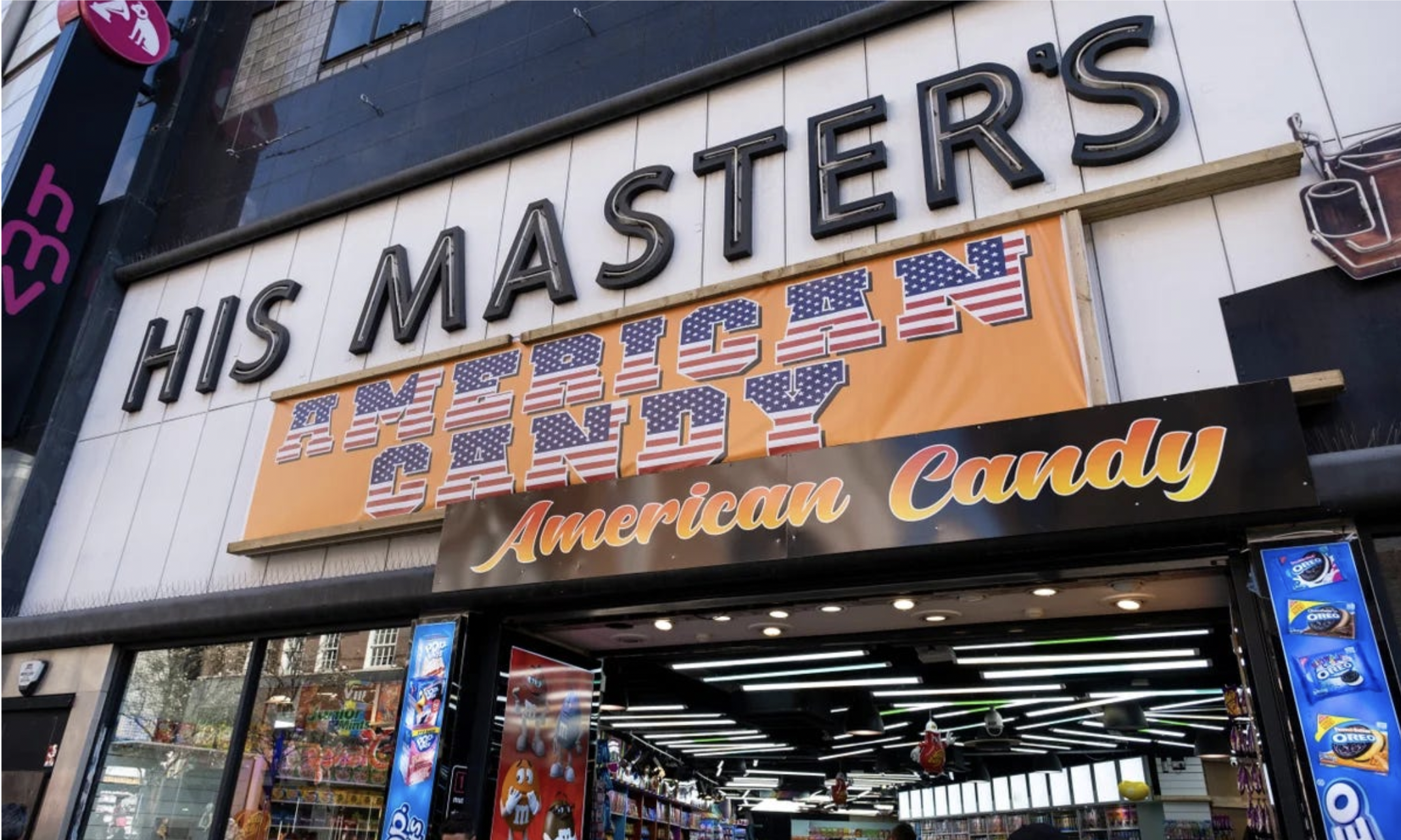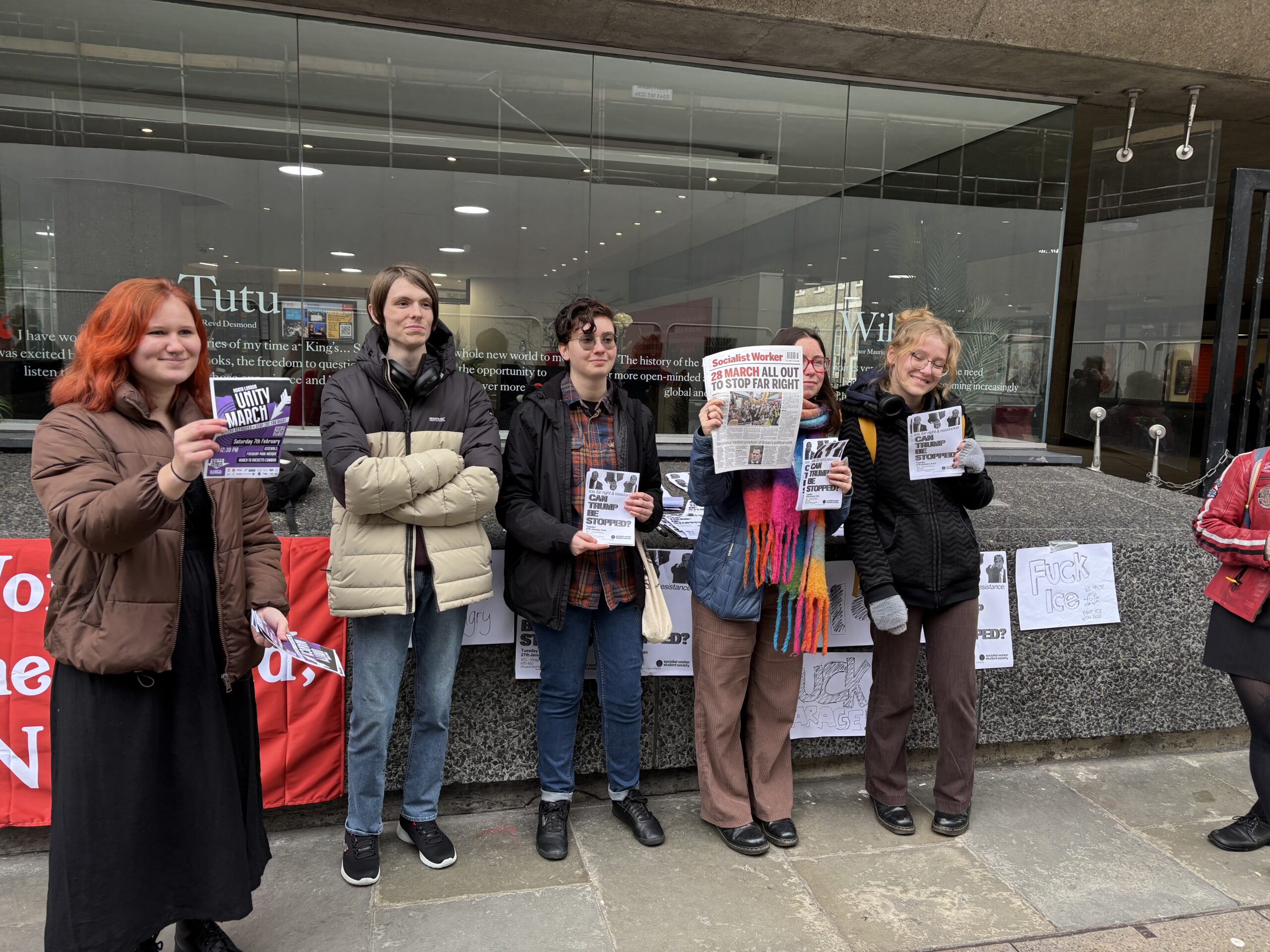Staff writer Alexander McCullough takes a look at the American Candy stores on Oxford Street and throughout central London and the ‘not so sweet’ practices of their business.
During and immediately after the Covid-19 pandemic, ‘Tourist Shops’ selling souvenirs at inflated prices closed down their stores on one of London’s busiest, and most expensive, shopping streets, Oxford Street.
Londoners describe the emergence of American Candy Stores in a blink-and-you’ll-miss-it manner. The owners of these businesses seized on the opportunity that the pandemic presented: to quietly transform several iconic Oxford Street storefronts. As the pandemic took hold of the public’s consciousness, few people seemed to notice or care about this change.
In the summer of 2021, interest in these shops began to emerge. How could it be possible for several competing shops to crop up that sell identical products, in some of the UK’s most expensive commercial real estate, only a few doors from each other?
The Issue at Hand
Oxford Street retail space can cost up to an eye-watering £1000/sqft in rent alone, with business rates, VAT, council charges and bills, significantly upping the cost of running one of these storefronts.
Plenty of people are drawn into these stores, but they rarely walk out with any items, as noted in a Byline Times investigation. So how these shops, which usually appear to be completely devoid of paying customers, are staying profitable has been the subject of intense speculation by the public, the media, and more recently, law enforcement agencies.
So, what are they up to? The short answer is that we don’t really know, however, several clues might reveal some of the picture.
When you enter an American Candy store, you will be greeted by bright halogen lights, pulsing pop music and so much colour that it feels like an assault on the senses. Typically, almost none of the stock has a labelled price and prices are known to fluctuate, and regular stock rotations mean that completely different products are available at different times.
The standard procedure for these companies is as follows. When HMRC or Companies House request filings and company information from these candy stores, they simply dissolve the company and re-form it in a new name, with different persons of significant control – at least on paper.
Often these named persons of significant control are not British citizens, making following up on economic enforcement or financial transparency far more difficult.
The challenges of enforcement do not end there. A Metropolitan Police source that I have spoken to believes that another issue with beginning law enforcement proceedings against these shops is the way that the Metropolitan Police and City of London Police target businesses that are suspected of money laundering.
Criteria to trigger an investigation, which are kept secret for operational reasons, include low footfall in a shop when compared with revenues, as well as a mismatch between the price and volume of goods compared with declared revenues.
Due to the central location of these shops in London, footfall is almost always high. According to the same Met Police source, by such criteria, these shops have avoided data-driven triggers for investigation.
In an investigation conducted by The Byline Times, their correspondent asked the price of a box of sugar-drenched cereal and was told that it would set him back £16.99. When he expressed his shock, at this absurd price (even by 2022 standards), the price requested immediately dropped to £12.99.
It was a similar story for other items, which included a Twinkies bar for £16.99, and a small packet of sweets for £9.99. These inflated and fluid prices can be viewed as a device that avoids the initiation of investigation by law enforcement or trading standards. There is no apparent advantage to having unknown and constantly changing prices other than to fabricate the true volume of trade.
The dissolution and re-formation of companies are just the tip of the iceberg when it comes to the intricate web of ownership behind these candy stores. Further digging into their corporate structures reveals a labyrinth of offshore holding companies, trusts, and partnerships that seem designed to obscure the true beneficiaries, according to a Private Eye investigation of similar candy stores.
That same investigation found that many of the stores operate as UK private limited companies, but these entities are often owned by opaque offshore holding companies based in tax havens like the British Virgin Islands or the Cayman Islands. These holding structures can involve multiple layers of shell companies, making it extremely difficult to trace the flow of funds and identify the individuals ultimately profiting from the businesses.

The (Limited) Response
The Economic Crime and Corporate Transparency Act became law in October 2023. This legislation has the stated aim of cleaning up the reputation of Companies House as a murky and opaque system where wrongdoing goes unnoticed and unpunished. This is because the system can allow for one to engineer a complex web of loopholes and company structuring arrangements that are advantageous for bad actors.
The measures that have been put in place include: No longer being allowed to use a PO box as a registered company address, identity verification for company officers or persons of significant control, the requirement for a registered email address for a company, a declaration that a company operates lawfully and intends to continue into the future, and Limited Partnerships must provide the names and addresses of their officers.
It is extraordinary that these rules were not already in place. In some cases, loopholes appear already to be baked into the legislation, presumably to ensure a smooth transition of existing companies, but this removes the teeth that the legislation would otherwise have had.
One example is that, although you are no longer able to use a PO box as a registered company address, you are able to use a third-party agent’s address that is in no way connected to the company, as long as you can have the mail redirected to you and are able to confirm the receipt of documents.
Although this will increase pressure on criminals, and will certainly catch a few out, if the UK is serious about dealing with this issue, the response from the Government must go much further.
For now, the shops still are increasing in number, and remain a significant presence in Central London, silently churning their way through vast sums of money, with little known about where it comes from, or who benefits from it.
No suggestion of impropriety is made in relation to any specific business mentioned or represented in this article.
















